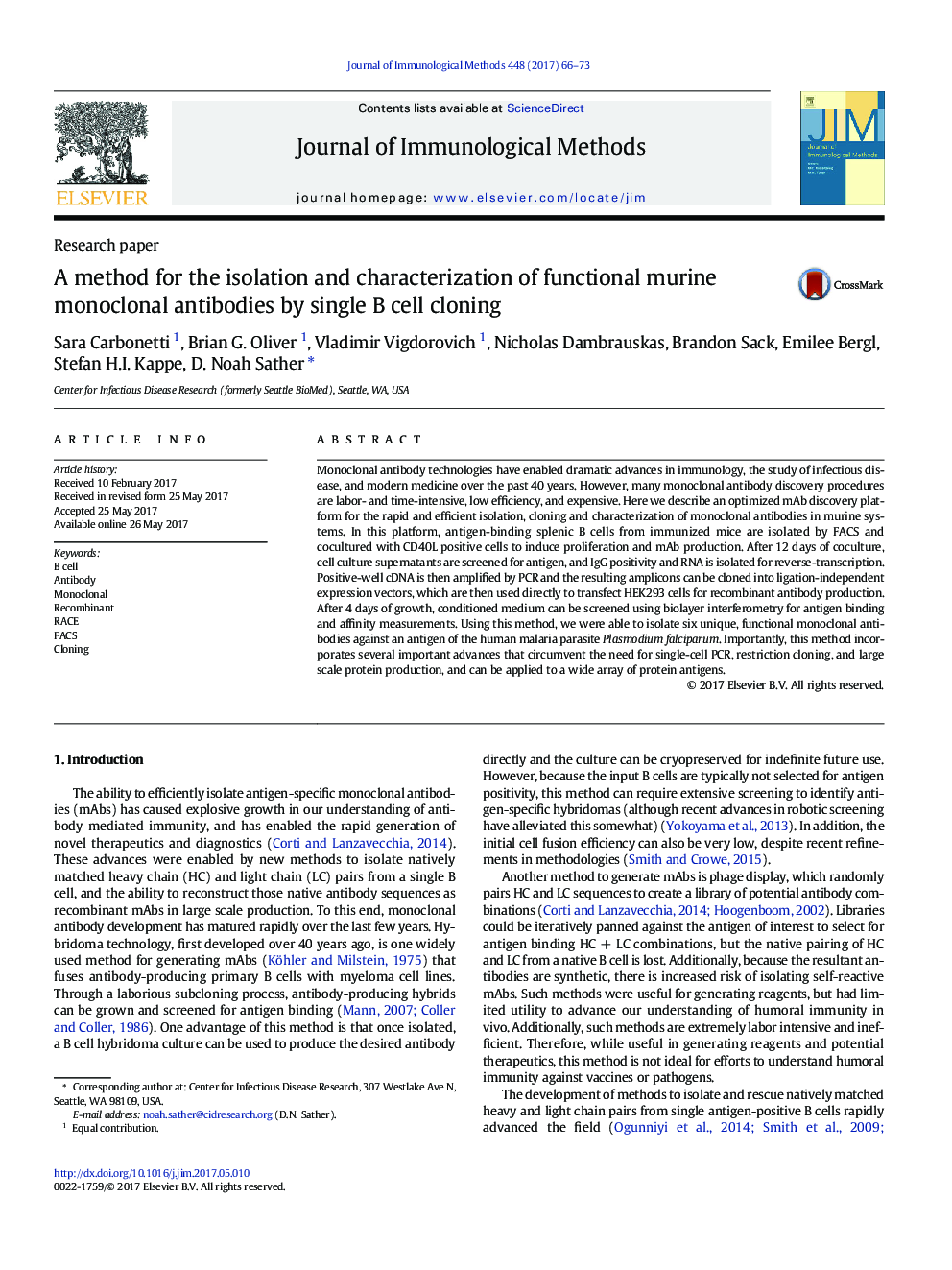| کد مقاله | کد نشریه | سال انتشار | مقاله انگلیسی | نسخه تمام متن |
|---|---|---|---|---|
| 5521976 | 1545661 | 2017 | 8 صفحه PDF | دانلود رایگان |

• mAb discovery method using FACS identification of antigen-specific B cells.
• B cell culture, screening, and rescue by 5’RACE ensures efficiency and accuracy.
• Co-culture of murine B cells to ensure efficient well selection with functional prescreening.
• Efficient mAb rescue allows rapid analysis of mAb binding and affinity.
• Method produces diverse mAbs with a range of specificities and binding affinities.
Monoclonal antibody technologies have enabled dramatic advances in immunology, the study of infectious disease, and modern medicine over the past 40 years. However, many monoclonal antibody discovery procedures are labor- and time-intensive, low efficiency, and expensive. Here we describe an optimized mAb discovery platform for the rapid and efficient isolation, cloning and characterization of monoclonal antibodies in murine systems. In this platform, antigen-binding splenic B cells from immunized mice are isolated by FACS and cocultured with CD40L positive cells to induce proliferation and mAb production. After 12 days of coculture, cell culture supernatants are screened for antigen, and IgG positivity and RNA is isolated for reverse-transcription. Positive-well cDNA is then amplified by PCR and the resulting amplicons can be cloned into ligation-independent expression vectors, which are then used directly to transfect HEK293 cells for recombinant antibody production. After 4 days of growth, conditioned medium can be screened using biolayer interferometry for antigen binding and affinity measurements. Using this method, we were able to isolate six unique, functional monoclonal antibodies against an antigen of the human malaria parasite Plasmodium falciparum. Importantly, this method incorporates several important advances that circumvent the need for single-cell PCR, restriction cloning, and large scale protein production, and can be applied to a wide array of protein antigens.
Journal: Journal of Immunological Methods - Volume 448, September 2017, Pages 66–73